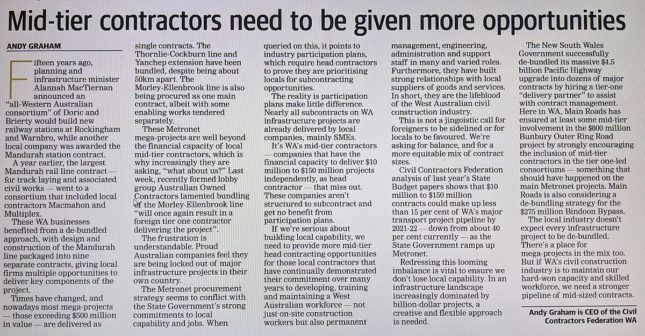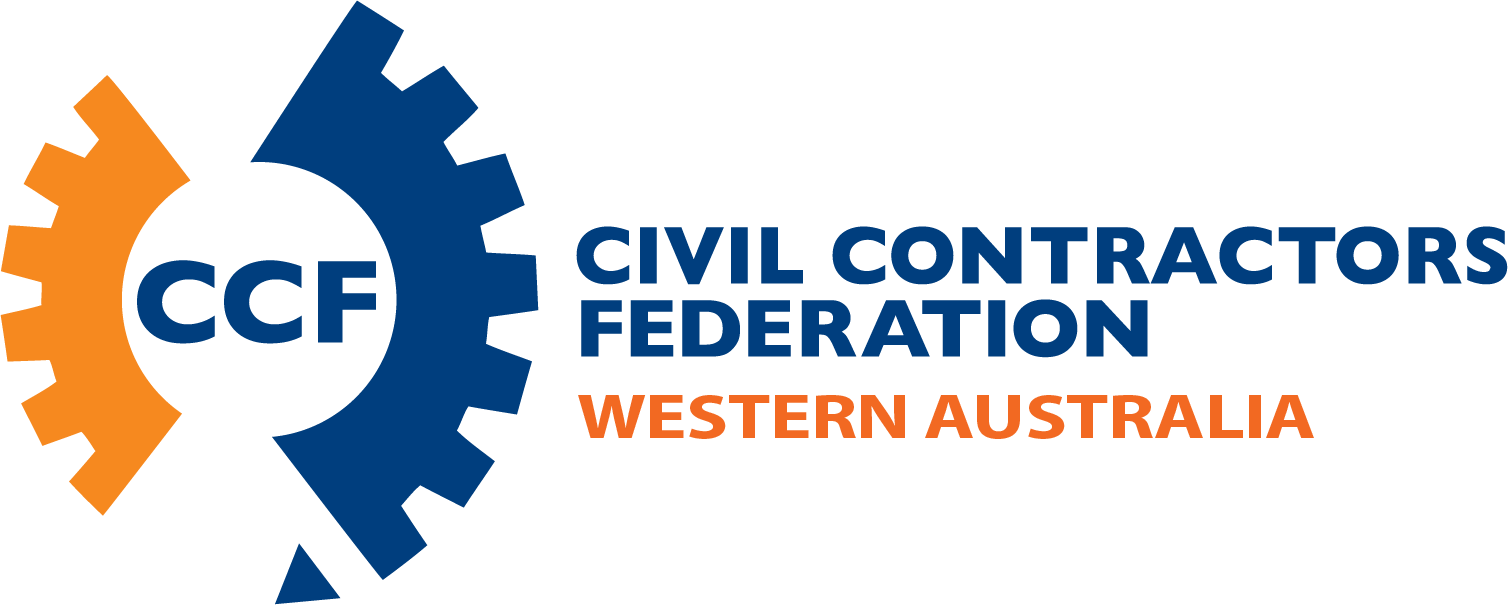Fifteen years ago, Planning and Infrastructure Minister Alannah MacTiernan announced an “all-Western Australian consortium” of Doric and Brierty would build new railway stations at Rockingham and Warnbro, while another local company was awarded the Mandurah station contract.
A year earlier, the largest Mandurah rail line contract – for track laying and associated civil works – went to a consortium that included local contractors MacMahon and Multiplex.
These WA businesses benefited from a de-bundled approach, with design and construction of the Mandurah line packaged into nine separate contracts, giving local firms multiple opportunities to deliver key components of the project.
Times have changed, and nowadays most mega-projects – those exceeding $500 million in value – are delivered as single contracts. The Thornlie-Cockburn line and Yanchep extension have been bundled, despite being about 50km apart. The Morley-Ellenbrook line is also being procured as one main contract, albeit with some enabling works tendered separately.
These METRONET mega-projects are well beyond the financial capacity of local mid-tier contractors, which is why increasingly they are asking “what about us?”. Last week, recently formed lobby group Australian Owned Contractors lamented bundling of the Morley-Ellenbrook line “will once again result in a foreign tier one contractor delivering the project”.
The frustration is understandable. Proud Australian companies feel they are being locked out of major infrastructure projects in their own country.
The METRONET procurement strategy seems to conflict with the State Government’s strong commitments to local capability and jobs. When queried on this, it points to industry participation plans, which require head contractors to prove they are prioritising locals for subcontracting opportunities.
The reality is participation plans make little difference. Nearly all subcontracts on WA infrastructure projects are already delivered by local companies, mainly SMEs.
It’s WA’s mid-tier contractors – companies that have the financial capacity to deliver $10 million to $150 million projects independently, as head contractor – that miss out. These companies aren’t structured to subcontract and get no benefit from participation plans.
If we’re serious about building local capability, we need to provide more mid-tier head contracting opportunities for those local contractors that have continually demonstrated their commitment over many years to developing, training and maintaining a Western Australian workforce – not just on-site construction workers but also permanent management, engineering, administration and support staff in many and varied roles. Furthermore, they have built strong relationships with local suppliers of goods and services. In short, they are the lifeblood of the Western Australian civil construction industry.
This is not a jingoistic call for foreigners to be sidelined or for locals to be favoured. We’re asking for balance, and for a more equitable mix of contract sizes. CCF’s analysis of last year’s State Budget papers shows that $10 million to $150 million contracts could make up less than 15 per cent of WA’s major transport project pipeline by 2021/22 – down from about 40% currently – as the State Government ramps up METRONET.
Redressing this looming imbalance is vital to ensure we don’t lose local capability. In an infrastructure landscape increasingly dominated by billion-dollar projects, a creative and flexible approach is needed.
The New South Wales Government successfully de-bundled its massive $4.5 billion Pacific Highway upgrade into dozens of major contracts by hiring a tier one ‘delivery partner’ to assist with contract management. Here in WA, Main Roads has ensured at least some mid-tier involvement in the $800 million Bunbury Outer Ring Road project by strongly encouraging the inclusion of mid-tier contractors in the tier one-led consortiums – something that should have happened on the main METRONET projects. Main Roads is also considering a de-bundling strategy for the $275 million Bindoon Bypass.
The local industry doesn’t expect every infrastructure project to be de-bundled. There’s a place for mega-projects in the mix too. But if WA’s civil construction industry is to maintain our hard-won capacity and skilled workforce, we need a stronger pipeline of mid-sized contracts.
Andy Graham
CEO, Civil Contractors Federation WA
(This opinion piece was published in The West Australian, May 1, 2020)


